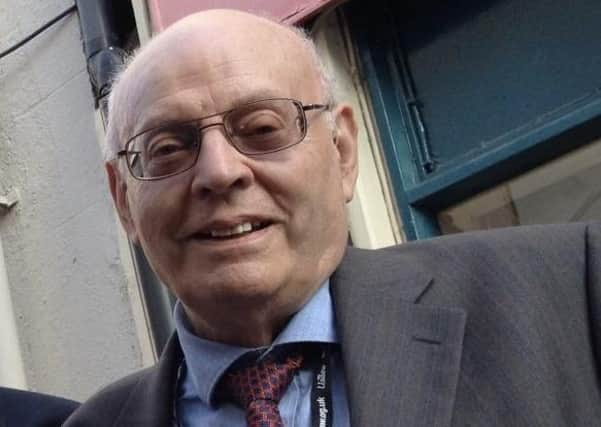Obituary: Professor Lewis Minkin, political historian


His work was rigorous, based on honest and demanding research; his knowledge immense and unmatchable. He developed a unique combination of academic and advisory roles, especially after writing Kinnock’s 1983 speech on reforming the defeated Labour Party, and was known as someone whose independent and creative judgement came from a deep understanding of Labour politics.
“The party has to become an admired, attractive and obvious example of fairness and transparency,” he wrote in 2014 in The Blair Supremacy.
Advertisement
Hide AdAdvertisement
Hide AdHis thinking was informed by his Leeds and Jewish working class upbringing. His father was Barnet Minkin, known as Bob, who was born in the Gorbals in 1895, but whose older brothers had come from Gomel, now in Belarus. The family moved to escape the increasing danger of pogroms, and settled in Leeds to work in the tailoring trade when Barnet was six months old.
His mother was Esther Ann Richards, known as Annie, whose family moved to Allerton Bywater for the mining work. She and Barnet married in 1935, in both Leeds Register office and the synagogue after Annie converted to Judaism.
Lewis was born in June 1936, an only child. He attended Meanwood Road Infants, and then Sheepscar Primary, suffering many instances of antisemitism which haunted him all his life.
In 1947, he passed the entrance exam to Roundhay – then a solidly middle-class institution. The teachers failed to recognise his talents and he left at 15 with no qualifications, finding work at the Burtons tailoring factory.
Advertisement
Hide AdAdvertisement
Hide AdNational Service followed with the RAF Signals in Cyprus, from where he got the last plane out to Malta before the Suez crisis. Back home, aged 26, his determination to learn got him a place at Leeds University’s department of politics. He graduated with a First and later received a doctorate from York University.
He worked at the Manchester University department of government for 20 years, becoming a senior lecturer in 1980, and was political adviser to several TV documentaries. He was visiting professor at Leeds Beckett and Sheffield Hallam Universities, and honorary professor at Leeds University.
In 1997 he published the book closest to his heart, Exits and Entrances: Political Research as a Creative Art. In it he wrote that failure “is not necessarily a disaster, nor need it be a full stop. It can represent an opportunity”.
He married Liz in 1988. He had one son Daniel, to his first wife, Lillie, a stepson and four grandsons.
Comment Guidelines
National World encourages reader discussion on our stories. User feedback, insights and back-and-forth exchanges add a rich layer of context to reporting. Please review our Community Guidelines before commenting.